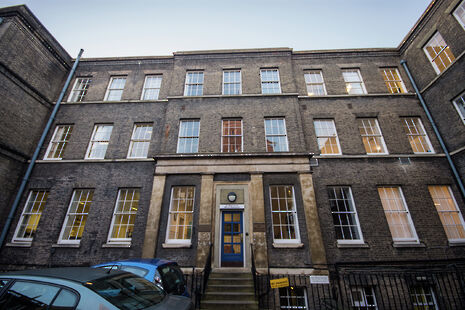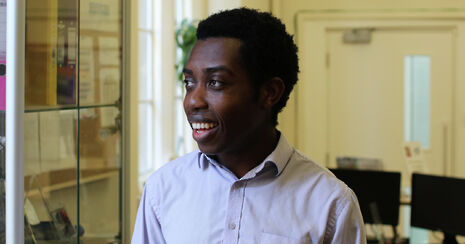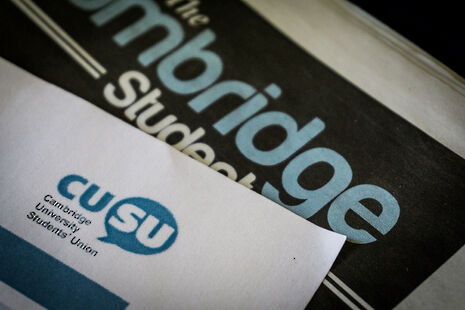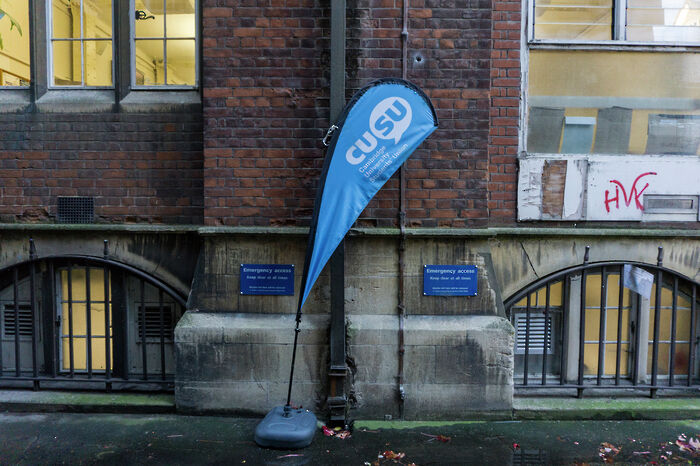Cash catastrophe for CUSU as £75,000 budget deficit raises possibility of bailout
The student union’s new draft budget shows that it is in another funding crisis, with a drastic chunk of its reserves eaten up as it renegotiates a publishing contract

CUSU is contemplating widespread cuts, over several years, in an effort to battle a giant anticipated deficit in its upcoming annual budget.
CUSU Council will be called to discuss potential cost-saving measures this evening, as the students’ union contemplates ways to shore up losses of £75,888, chiefly incurred as a side-effect of renegotiating a publishing contract.
A draft budget proposal, sent out late last night, showed an anticipated income of £664,146, and expenditure of £740,034. The loss will result in a huge chunk being taken of CUSU’s listed financial reserves, which the document says will fall from £169,443 to just £93,555 by the end of 2017/18. It also carried a revised estimation of CUSU’s fee to the National Union of Students (NUS), suggesting a possible fortyfold increase in fees this year.
At Council this evening, attendees will be asked for their views on various cost-saving proposals, which include reducing Council’s free budget for financially supporting motions, and moving away from its £8,000-a-year, NUS-hosted website.
Cost-saving efforts mean that even some sabbatical roles could be at risk. CUSU has said that it “will not meet a break-even budget in the medium- to longer-term without deeper reductions in expenditure, which will likely result in reductions to the staff and/or officer team.”
A increase in JCR and MCR affiliation fees may also be raised as an option. CUSU President Amatey Doku confirmed to Varsity that further cuts to CUSU’s newspaper The Cambridge Student (TCS) are not currently on the table, following a substantial drop in its budget last year.
In a message to the Facebook group of Presidents and External Officers, who make up the majority of Council attendees, Doku apologised for how late the document had been circulated, and emphasised that the proposal offered an “opportunity to consult” on changes.
The draft budget says “For many years CUSU has relied heavily on income from external publications to meet levels of expenditure necessary to fulfil its charitable objectives. At the present time the Board is re-negotiating the possibility of continuing a business relationship with the external publisher and, as such, has been and will continue to experience a shortfall in income in 2017-2018.
“Faced with a significant reduction in funding, the Board of Trustees has decided to take steps to reduce levels of expenditure whilst putting a plan in place to proactively address the charity’s financial difficulties. It is possible that part of this plan will involve looking to the University for financial assistance over the next few years.”

CUSU’s accounts have been the source of significant issues in recent years. In 2016, a funding shortfall spurred in part by the creation of the new Disabled Students’ Officer role meant that large cuts were proposed, which would have brought TCS’s print run to an end. In an internal email seen by Varsity last April, CUSU General Manager Mark McCormack listed a variety of issues including increased team size, increased staffing costs and a “lack of University support” as factors in the decision to propose a cut. Budget figures showed that the paper was losing thousands of pounds per year. Alongside the print funding cut, the 2016–17 budget included an increased allocation for TCS’s website and development.
Over the summer of 2016, TCS’s Michaelmas editors raised the possibility of the paper becoming independent. Varsity understands that attempts to gather block funding from other organisations were unsuccessful. Before Michaelmas term began, TCS and CUSU reached an agreement that the former could spend its budget on continuing print instead of web development if it wished. The paper ran fortnightly editions through Michaelmas and Lent term.

In June 2015, CUSU was forced to request a bailout from the University in order to plug a funding gap after the failure of one of its careers publications, the CUSU Guide to Excellence. When the bailout was revealed by Varsity in October 2015, it was reported that the University said that “support for this request should be regarded as exceptional”, and that CUSU should cease its publication of the Guide to Excellence to alleviate “the risk to the reputation of the University”. The publishing company, St James’ House, has a long history with CUSU including developing a new careers website last year. The University has been contacted for comment.
Despite the problems which publication contracts have created for CUSU in past, the draft budget proposes that they continue to be part of the student union’s fundraising strategy. It outlines plans to “Introduce a new careers project over the next 3 years (with a view to operating a loss-making budget initially, but recovering that loss over time.)”.
Doku defended the budget proposals as an opportunity for the student union to rectify long-standing issues with its finances. Speaking to Varsity, he said CUSU has a “clear plan”, and that it was “the first time in a long time that [CUSU] has been able to think really clearly about the short-term and the long-term”.
He stood by the possibility of proposing an increase in affiliation fees, which are currently paid by affiliated college unions on a per-head basis. Though he noted they are not in the new budget proposal yet, Doku said “it would be odd for me not to have consultation on it...at the end of the day, they’ve been frozen for some time”.
Doku said TCS’s reduced funding model had “worked”, and said that the paper is now making a profit again. He said CUSU is happy for the paper to continue to pursue a “solution” of funding less-frequent print editions instead of investing in its website.
The draft proposal also includes a new estimation CUSU’s NUS affiliation fees, which were reported in February to be set for an up to twentyfold increase. The new figure, £10,500, is even higher than what was previously suggested. Doku confirmed to Varsity that he would be continuing to negotiate for a better deal now that NUS Conference season has passed.
CUSU has yet to vote on its re-affiliation with NUS, a year after scandals surrounding outgoing President Malia Bouattia resulted in a referendum in which Cambridge narrowly avoided voting to leave the national organisation. It is expected to arise as a discussion at the second CUSU Council meeting this term, in a few weeks’ time. Doku, who is now a Vice-President elect of the NUS, told Varsity that he will support re-affiliation.
Council members will have only a day to get to grips with the proposal and prepare questions. Sebastian Wrobel, Wolfson College’s External Officer, criticised the lack of detail in the proposal. He told Varsity “it doesn't break down any of the numbers and gives only some indication as to what the money will be spent on next year. In comparison last year’s budget proposal was more detailed and accompanied by 17 pages of remarks. I hope that we receive more and earlier information before the budget is put to a vote at the second Council meeting of term”
 News / Judge Business School advisor resigns over Epstein and Andrew links18 February 2026
News / Judge Business School advisor resigns over Epstein and Andrew links18 February 2026 News / Hundreds of Cambridge academics demand vote on fate of vet course20 February 2026
News / Hundreds of Cambridge academics demand vote on fate of vet course20 February 2026 News / Gov grants £36m to Cambridge supercomputer17 February 2026
News / Gov grants £36m to Cambridge supercomputer17 February 2026 News / CUCA members attend Reform rally in London20 February 2026
News / CUCA members attend Reform rally in London20 February 2026 News / Union speakers condemn ‘hateful’ Katie Hopkins speech14 February 2026
News / Union speakers condemn ‘hateful’ Katie Hopkins speech14 February 2026











